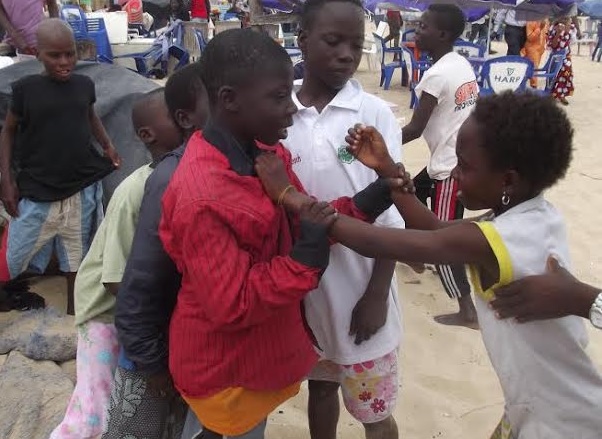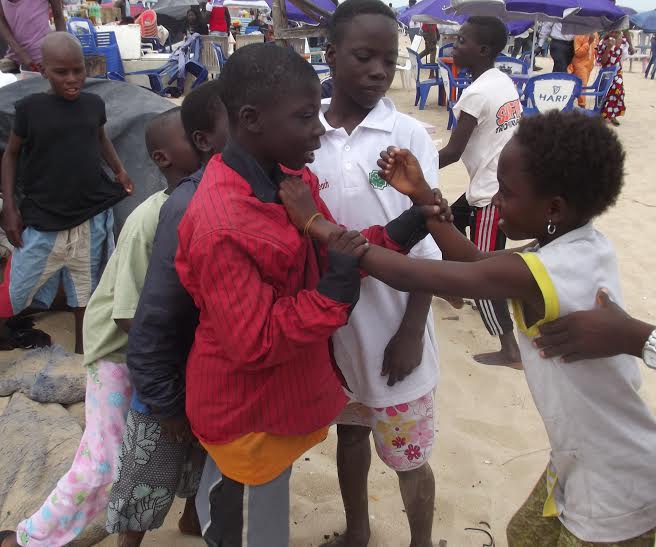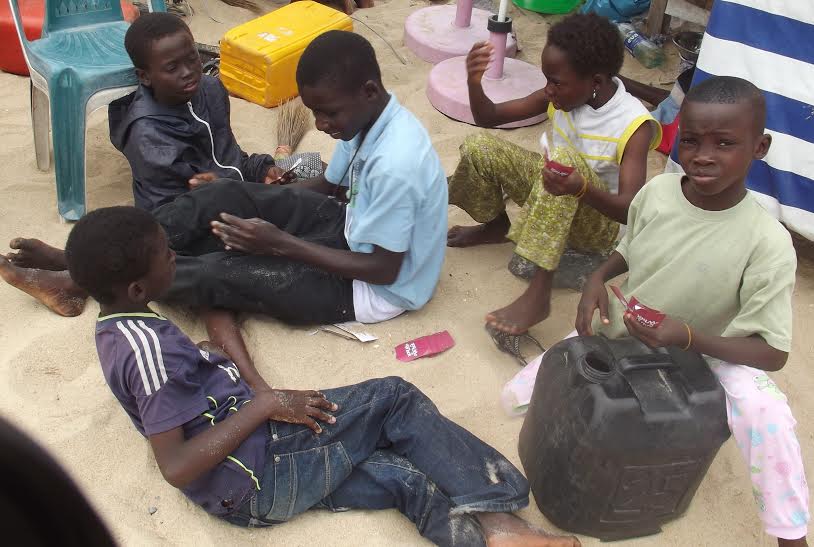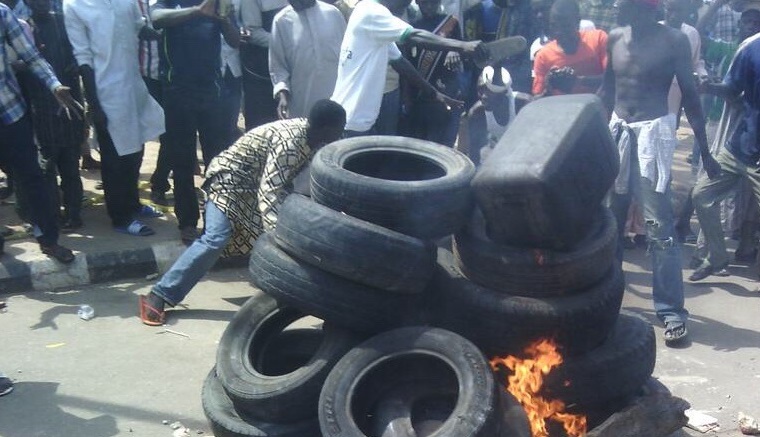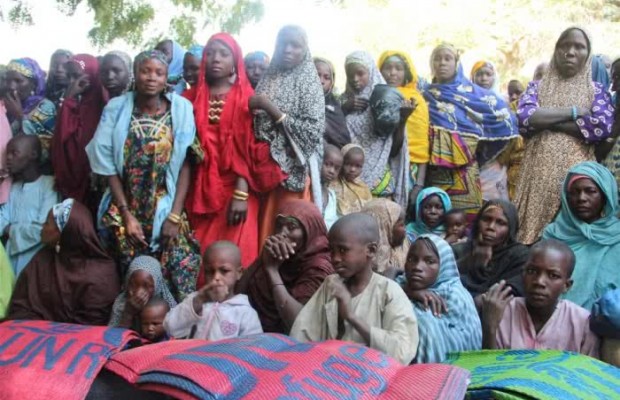BAR BEACH, LAGOS, SEPTEMBER 2014
Samuel Omoho is a life saver but he has no life of his own — literally. And it would seem he was never destined to have one.
The 58-year-old was only three when he scalded his fingers after “falling into a pan of hot oil”. With the resulting stunted fingers, he grew up worrying how he would ever lead a normal life: Would any woman marry him? He always wondered.
One did, eventually. But she would jilt him in 2008, abandoning their three children to start life afresh with another man — a man who, unlike Omoho, had a means of livelihood.
So, without a stable job, a wife or a home, Omoho roams Lagos’ most famous and notorious beach, the Bar Beach, in daytime, looking out for drowned fun-seekers whose lives he can save, most of whom — in any case — are never grateful enough after surviving to part with cash. At night, he “hides” — along with his children and their septuagenarian grandmother — under a makeshift tent made by staking abandoned tarpaulin with wood. Omoho is the life saver without a life.
Advertisement
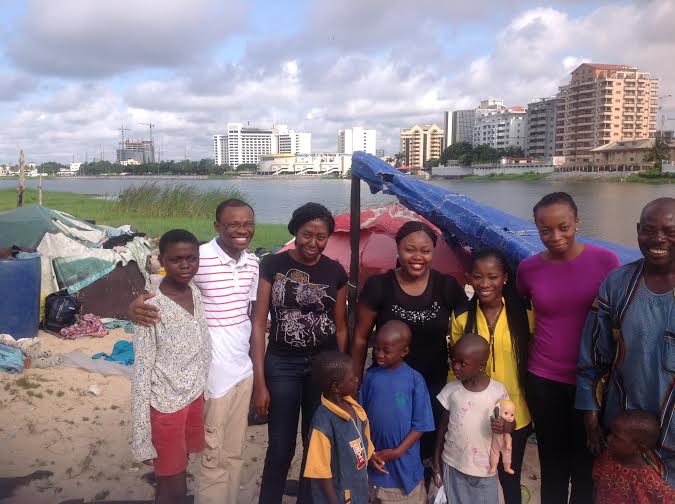
KURAMO BEACH, LAGOS, SEPTEMBER 2012
East of Omoho’s Bar Beach ‘home’ is a beach by the name Kuramo, where two twins had been living before they knew the meaning of life. Taiwo and kehinde, ‘the Kuramo brothers’, were toddlers when their mum — ejected by her in-laws after her husband’s death — dumped them at a Kuramo Beach better known for drug peddling and prostitution than for fun-seeking.
In what was an astonishing triumph of good over evil, the Kuramo brothers favoured school over drugs; and although they could not afford it, they decided to ‘use what they had to get what they wanted’.
Naturally, beach kids grow up knowing how to swim and skate. Taiwo and Kehinde began to skate through the typically-maddening Lagos traffic, distributing handbills in return for pittance. Every N1,000 they made, they deposited at a nearby school. Someday, they “hoped” to make enough money to be able to sit in class like the many children they occasionally ran into while circulating flyers in the sweltering summer sun.
Advertisement
IDERE, OYO STATE, JULY 2012
Ismaila has a first name but not a surname. No; Ismaila has a surname, but he doesn’t know it.
His boyhood was defined by a paternity tussle that meant a self-professed father — a herbalist, by the way — showed up on a morning and whisked him to Ayete, a nearby town. And on another day, his “second father” turned up to claim him.
Frustrated by the daily battles, he chose to be son to none; and one day in 2006, the then eight-year-old trekked approximately 92km from Idere to Abeokuta, capital of neighbouring Ogun state, where he pleaded for alms to raise money for a trip to Lagos. Not having a single relative in Lagos, Ismaila ended up at Kuramo Beach and was soon smoking hemp.
Advertisement
SAMONDA, OYO STATE, OCTOBER 15, 2011
At exactly 9:48pm inside the Immanuel College of Theology, Samonda, Ibadan, a Lagos-based young lawyer, Abimbola Ojenike, began wooing a fellow graduate of Nigeria’s first varsity, the University of Ibadan, to join him on an audacious project to “address the needs of abused, neglected and homeless children through an integrated range of assistance including provision of food, foster home, education, emergency shelter, clothing, health care, mentoring, counselling and child protective services”.
The vision, he explained, was to “provide as many of these homeless children with an atmosphere of love, security, guidance, motivation, discipline and acceptance where they can grow as a total man, recover from trauma, and live to the full extent of their potentials in life despite the initial negative childhood experiences”.
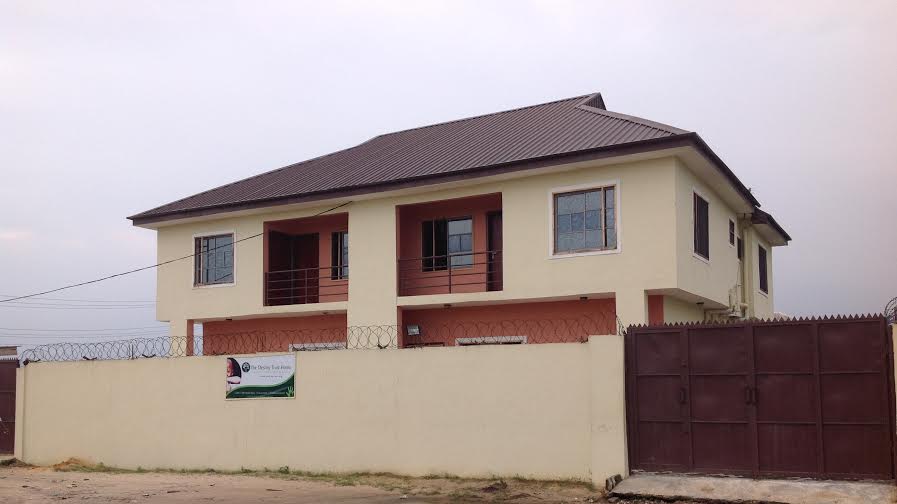
IBEJU-LEKKI, LAGOS STATE, SEPTEMBER 13, 2014
Three years later, that late-night talk had metamorphosed into a charity that had breathed new life into dozens of kids and their parents. Two of Omoho’s children had been taken into The Destiny Trust (TDT) Home, Bogije, Ibeju-Lekki, and were awaiting resumption of school.
Advertisement
Ismaila had been resettled to Idere, under the care of a foster mother, after it was clear that mother and son were now incompatible due to several years of living apart.
‘The Kuramo brothers’ had been taken into TDT Home and were already in school; even their periodic N1,000 school contributions of the past no longer mattered.
Advertisement
REVITALISED HOPES
“I always wanted to become a banker,” Kehinde says, reminiscing about his old life.
Advertisement
“Before I got here, it looked like it would not be possible. But now, I’m sure I’d become a banker one day.”
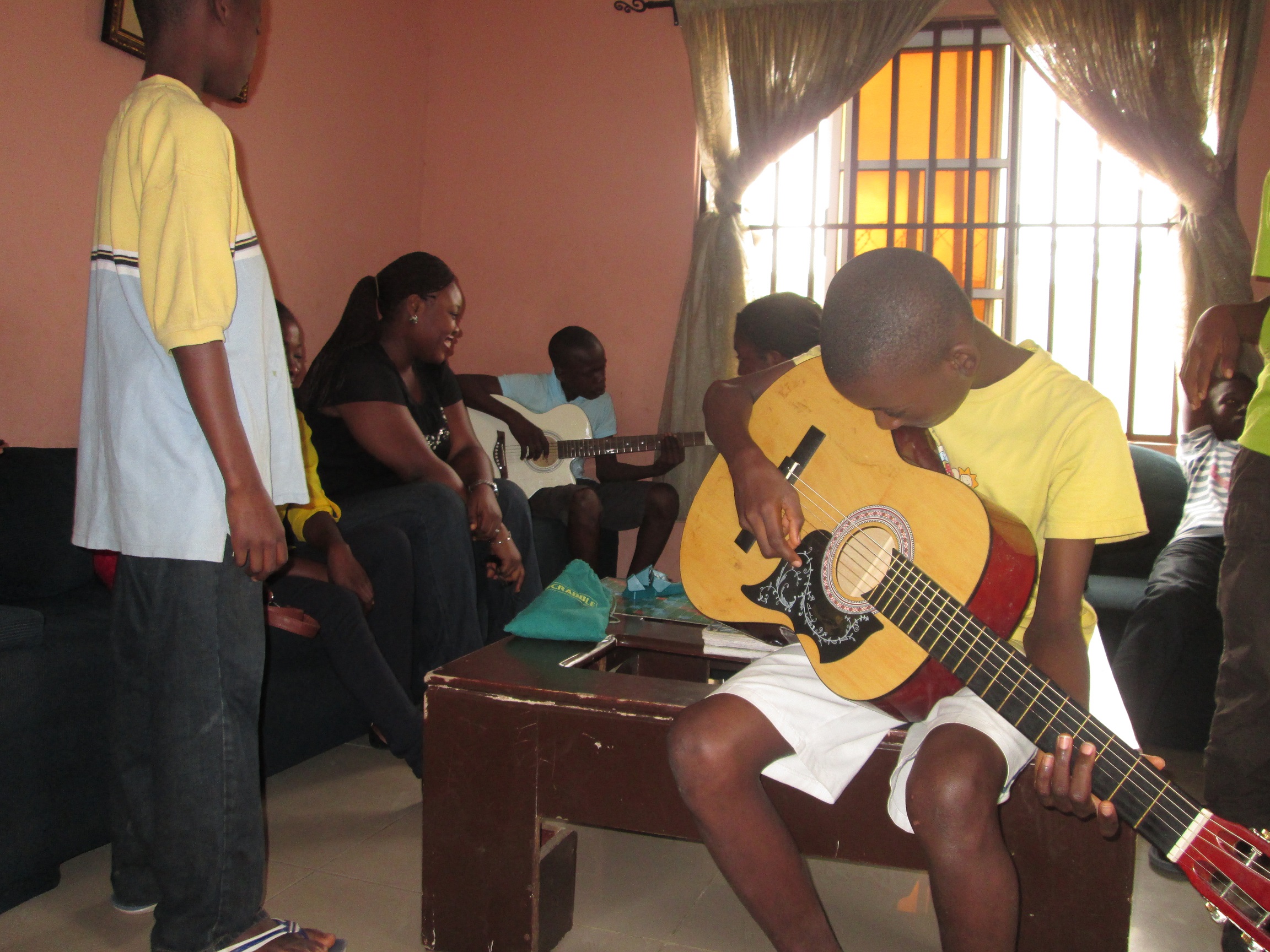
THE GOOD SAMARITANS
Truly, Ojenike founded TDT. But this is a title he is quick to reject, in deference to scores of young Nigerians who continue to fund the project through monthly contributions from their meagre salaries.
Advertisement
“It doesn’t matter who founded it. No, no, no. I am the last person who deserves to take credit for the modest success we have recorded with Destiny Trust,” he says.
“Of the N7 million spent on 12 resident, 20 visiting, and other resettled kids, more than N6 million has come from youth donations. So credit should strictly be going to those people supporting us.”

And this is not because these youths are rich; they simply believe in the cause. In 2013, one of them donated an entire month’s salary to TDT.
“Make no mistake: I need money myself. But the money would go anyway, so why not let it go on something that would matter, something that would make sense,” the 25-year-old lady says of her donation.
“I had just secured a new job and I wanted to use the first salary for something symbolic. I thought I could give it to church, but everybody gives to church, so I thought why not give it here? Here because this is God’s work and this is a place where they need the money — people that I give it to and they cannot give me anything in return. I thought why not!”
Clearly, Omoho understands the sacrifice.
“I have to praise them and thank God for them, because they are saving people’s lives; they are making Nigeria to progress in the future,” he says.
“God will bless them.”
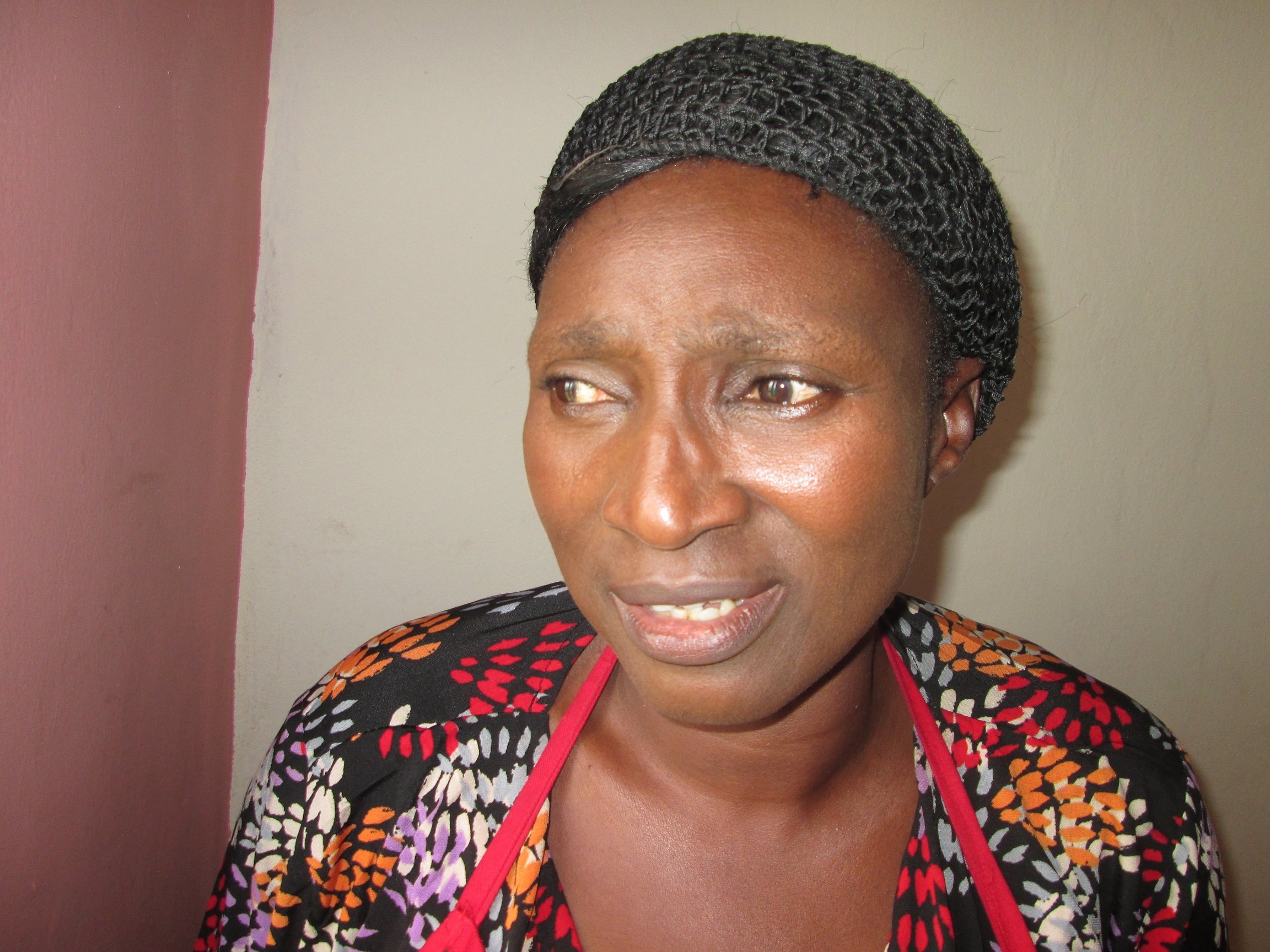
But what is the end product of all these donations?
Winifred Oluwatoyin, the middle-aged caregiver of the house, gives an idea.
“These children are very hard-working and very neat; they are growing spiritually,” she says. “They will become great men and women of God in future; I see them in very high places.”
Should this prediction come true, the dream of Ojenike and his team of young Nigerians to “transform” the lives of street kids would have been fulfilled. At the moment, that dream is on course.

